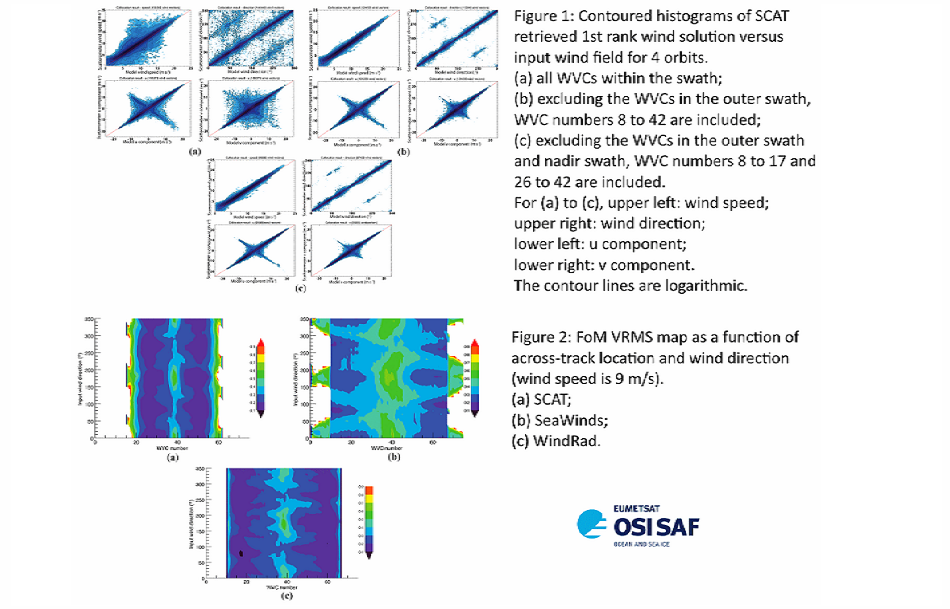05/07/2021
CFOSAT and WindRad Rotating Fan-beam SCATterometer Simulation and Wind Retrieval Performance Evaluation
-
In the frame of the NWP SAF and of the OSI SAF, the scatterometer team at KNMI assessed the performance of CFOSAT and WindRad Rotating Fan-beam Scatterometer Simulation and Wind Retrieval.
Here below, Zhen Li explains briefly what was done and what was found during this study.
What did we do?
-
Built a simulation framework for all existing rotating-beam scatterometer types (rotating fan-beam and rotating pencil-beam).
-
Evaluated the wind retrieval performance of SCAT (CFOSAT), WindRad and SeaWinds under the same simulation framework.
-
Analyzed the pros and cons among SCAT, WindRad and SeaWinds.
-
The developed simulation package allows us to further investigate the true resolution of the instruments before their launch and also to determine the non-overlap of the views in a WVC, which contributes to the geophysical noise.
What did we find?
-
The wind retrieval quality strongly depends on the location of the WVCs across the swath, and the sweet swath shows the most favourable geometries for wind retrieval (Figure 1).
-
Among the more unfavourable outer and nadir swath regions, SCAT and SeaWinds perform best in the nadir swath, while WindRad rather substantially improves the outer swath wind retrieval.
-
WindRad’s nadir swath region with lower wind retrieval quality is larger than its outer swath region, while SCAT and SeaWinds have a relatively large outer swath region with degraded quality (Figure 2).
-
The outer swath of SCAT implies both wind speed and wind direction retrieval problems, while for WindRad only wind speed retrieval is affected.
-
The increased number of views in the nadir and sweet swath for WindRad does not lead to an improved wind retrieval, but it shows a saturation effect and stays relatively similar to SCAT.
Report on this study :
-

